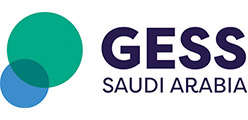30 October, 2023 | 11:00 to 11:20
Health and Wellbeing as a subject and philosophy
Research says that wellbeing impacts our ability to learn, that stress directly inhibits learning. How can schools approach health and wellbeing to best improve learning and support all students to flourish? We will explore:
• Understanding of the importance of health and well-being in education. • The connection between health and wellbeing and learning.
• Strategies for integrating health and well-being into the curriculum – well-doing, topics, learning goals
• Strategies for integrating health and well-being into the school culture – policies, personal development, and community.
• Evaluate where you are now and consider an action plan for further developing health and well-being in participants' schools. By the end of the session, Participants will have a deeper understanding of how health and wellbeing improve learning, how learners play a crucial role in their own wellbeing, and how implicit and explicit approaches can influence both the subject and school culture.
30 October, 2023 | 13:30 to 13:50
Empowering Learners through Metacognition: Creating and organising Learning focused Environments
This opening part of this session will explain the concept of metacognition and its impact on the learning process. Metacognition refers to the ability to monitor one's own thinking and learning, and to apply strategies to regulate and take responsibility for the learning process. It is a critical component of academic success and lifelong learning. The main part of the session will focus on the organisation of learning environments and the use of displays to promote metacognition and improve learning. Key points to be covered: • Displays that support episodic and cognitive memory. • Learning-focused displays that develop over time. • Interactive environments and displays to inspire and motivate learners. • Offering tools, resources and choices for learners to lead their own learning. By the end of the session, participants will have a deeper understanding of how classroom organisation improves learning and can support learners with developing metacognition.
31 October, 2023 | 11:30 to 12:15
Exploring contemporary visions of Early Years Education
This panel will consider best international approaches to Early Years education from experts with global experience. Our panel will discuss what early years education should look like and how to meet children’s needs in an inclusive, empowering way.
31 October, 2023 | 13:05 to 14:05
Is international mindedness enough? Beyond international mindedness to global competence
An increasingly interconnected, globalised world demands that educators prepare students for success in a society facing complex challenges. By engaging with Education for Sustainable Development schools can directly contribute to SDG 4 – Quality Education. This conference session will: • Define international mindedness and global competence.
• Identify the need for global competence and citizenship in the curriculum for all ages.
• Present a framework for developing global competence.
• Exemplify how this can be addressed explicitly through the curriculum.
• Make reference to the SDGs connected to subject content.
• Explore how to ensure all learners can see themselves in the curriculum.
• Demonstrate how to include diverse perspectives and experiences which leads to developing empathy. By the end of the session, participants will have a deeper understanding of global competence and inspiration for how to integrate it into their teaching and learning.
31 October, 2023 | 14:05 to 14:25
Two approaches to Leading Action Research in schools
The main goal of action research is to improve the quality of practice; it can promote evidence-based decision-making about curriculum, instruction, and assessment and inform policy and practice. It is a form of research that is designed to promote change and improvement within a specific context or organisation. I will briefly explain two approaches that schools can use to stimulate and guide action research in their schools. Both are grounded in reflective practice, will support professional growth and empower teachers to drive change in policy and practice. The first follows a ‘Do-Think-Do’ process and the second a ‘Think-do-Think’ process.


